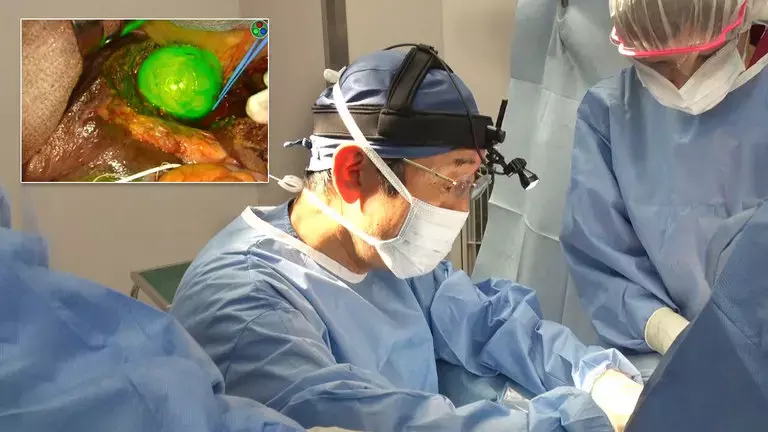- Home
- Medical news & Guidelines
- Anesthesiology
- Cardiology and CTVS
- Critical Care
- Dentistry
- Dermatology
- Diabetes and Endocrinology
- ENT
- Gastroenterology
- Medicine
- Nephrology
- Neurology
- Obstretics-Gynaecology
- Oncology
- Ophthalmology
- Orthopaedics
- Pediatrics-Neonatology
- Psychiatry
- Pulmonology
- Radiology
- Surgery
- Urology
- Laboratory Medicine
- Diet
- Nursing
- Paramedical
- Physiotherapy
- Health news
- Fact Check
- Bone Health Fact Check
- Brain Health Fact Check
- Cancer Related Fact Check
- Child Care Fact Check
- Dental and oral health fact check
- Diabetes and metabolic health fact check
- Diet and Nutrition Fact Check
- Eye and ENT Care Fact Check
- Fitness fact check
- Gut health fact check
- Heart health fact check
- Kidney health fact check
- Medical education fact check
- Men's health fact check
- Respiratory fact check
- Skin and hair care fact check
- Vaccine and Immunization fact check
- Women's health fact check
- AYUSH
- State News
- Andaman and Nicobar Islands
- Andhra Pradesh
- Arunachal Pradesh
- Assam
- Bihar
- Chandigarh
- Chattisgarh
- Dadra and Nagar Haveli
- Daman and Diu
- Delhi
- Goa
- Gujarat
- Haryana
- Himachal Pradesh
- Jammu & Kashmir
- Jharkhand
- Karnataka
- Kerala
- Ladakh
- Lakshadweep
- Madhya Pradesh
- Maharashtra
- Manipur
- Meghalaya
- Mizoram
- Nagaland
- Odisha
- Puducherry
- Punjab
- Rajasthan
- Sikkim
- Tamil Nadu
- Telangana
- Tripura
- Uttar Pradesh
- Uttrakhand
- West Bengal
- Medical Education
- Industry
Fluorescence-Guided Lumpectomy Reduces Need for Re-excision in Breast Cancer

Surgical resection of cancer remains an important treatment modality. The presence of residual tumour cells after resection is considered a strong predictor of tumour recurrence and, therefore, survival. Many studies show that positive margins, defined as the identification of tumour cells at the cut edge of a surgical specimen, are associated with increased local recurrence and indicate a poor prognosis in most cancer types.
In a recent study, researchers found that a fluorescence-guided imaging system could improve intraoperative detection of residual breast cancer in women undergoing lumpectomy. The study findings were presented at the Society of Surgical Oncology 2022 (SSO 2022) on March 11, 2022.
The first use of fluorescence imaging in surgery dates back to 1948 when surgeons used intravenous fluorescein to enhance intracranial neoplasms during neurosurgery. Since then, additional fluorescent agents have been used for a variety of surgical applications. Studies have shown that compared with standard unaided vision using white light imaging, real-time fluorescence imaging helps to identify cancerous tissue and delineating tumour margin. To further explore, Dr Shelley Hwang and her team conducted a study to collect safety and efficacy data on pegulicianine fluorescence-guided surgery (pFGS) for identifying residual cancer in the tumour bed of patients undergoing breast-conserving surgery (BCS).
In a prospective, single-arm, open-label feasibility study conducted across 16 US sites, the researchers included 234 female patients aged ≥18 years with newly diagnosed invasive or intraductal cancer undergoing BCS. Patients were intravenously administered with pegulicianine 4 ± 2 hours before surgery at a dose of 1.0 mg/kg. After tumour excision per standard of care (SOC), the researchers used pFGS for the identification and removal of residual cancer.
Key findings of the study:
- Upon analysis, the researchers found that pFGS prompted additional margin excisions in 138 patients and observed residual tumour 26 (19%) patients.
- They noted that negative margins after SOC BCS were achieved in 192/230 (83.5%) patients.
- However, they found that the pFGS-guided excision in 14 of those 192 turned up the residual tumour, meaning cancer tissue would have otherwise remained in those 14 women.
- Among the 38 patients with positive margins after SOC BCS, they noted that 23 had pFGS shaves; 6 of these patients (15.8%) were converted to negative margins on final pathology.
- In 3 additional patients with positive SOC BCS margins, pFGS recommended further excision, but these were not performed based upon surgeon judgement.
- They noted that the overall final positive margin rate after pFGS was 15% (35/230).
- They found that the negative predictive value was 98.2% for pFGS versus 90.5% for standard pathology assessment.
- They further reported that one patient with a history of allergy to contrast agents had an anaphylactic reaction but subsequently recovered.
The authors concluded, "Residual tumour was removed after SOC BCS in 19% of patients who underwent an additional margin excision for a positive pFGS signal. The safety profile of pegulicianine was excellent and consistent with other imaging agents used in BCS. These findings, including a notably high negative predictive value, support further clinical assessment of pFGS which is currently being conducted in a prospective randomized trial".
For further information:
Hwang S, et al "The clinical impact of intraoperative margin assessment in breast cancer surgery using a novel pegulicianine fluorescence-guided surgery system: A prospective single arm study" SSO 2022; Abstract 20.
Keywords:
breast conserving surgery, pegulicianine fluorescence guided surgery, pFGS, residual cancer, intraductal cancer, lumpectomy edge, pFGS-guided excision, cancer margins, standard of care, SSO 2022, Society of Surgical Oncology.
Medical Dialogues Bureau consists of a team of passionate medical/scientific writers, led by doctors and healthcare researchers. Our team efforts to bring you updated and timely news about the important happenings of the medical and healthcare sector. Our editorial team can be reached at editorial@medicaldialogues.in.
Dr Kamal Kant Kohli-MBBS, DTCD- a chest specialist with more than 30 years of practice and a flair for writing clinical articles, Dr Kamal Kant Kohli joined Medical Dialogues as a Chief Editor of Medical News. Besides writing articles, as an editor, he proofreads and verifies all the medical content published on Medical Dialogues including those coming from journals, studies,medical conferences,guidelines etc. Email: drkohli@medicaldialogues.in. Contact no. 011-43720751


